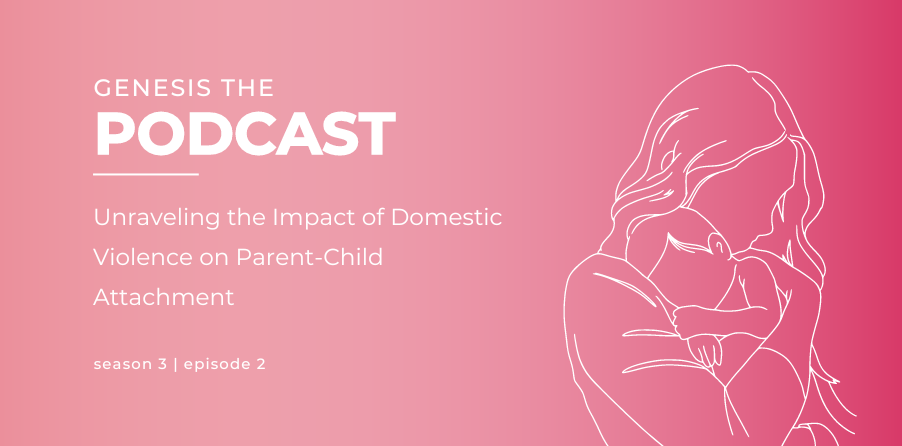Unraveling the Impact of Domestic Violence on Parent-Child Attachment

Understanding the profound impact of domestic violence on the parent-child bond is essential for mental health professionals, social workers, and the public alike. This intricate connection is the focal point of our latest podcast episode, where we had the privilege of speaking with Ruth Guerreiro, Chief Clinical Officer of Genesis Women’s Shelter and Support.
During our conversation, we delved into the four types of attachment styles – secure, avoidant, ambivalent, and disorganized – and the impact domestic violence can have on each. We also examined the disruptive tactics employed by abusive partners that create a challenging environment for the mother to form a secure attachment with her child. These tactics are not just limited to physical violence, but include emotional and psychological abuse, effectively creating a form of psychological warfare within the family unit and leaving lasting scars on the children. By subtly communicating messages of disrespect, inequality, and aggression, abusive fathers undermine the mother’s ability to parent effectively, which, in turn, impacts the children’s psychological development and their relationship with their mother.
This deep exploration of domestic violence’s impact on parent-child attachment also highlighted the various forms of disruption in the bonding process. These disruptions include neglect, physical or sexual abuse by a parent, a painful medical intervention or hospitalization, and witnessing domestic violence. The effects of this trauma manifest in fear, guilt, anger, aggression, and an inability to accept responsibility for one’s own actions.
We also discussed the power of therapy in mending the mother-child bond post-trauma demonstrating that hope and healing are possible. Therapies such as Eye Movement Desensitization and Reprocessing (EMDR) and play therapy can significantly aid in fostering a sense of secure attachment in children affected by domestic violence. Our conversation reiterated the resilience of the mother-child bond, despite the adversities faced. This episode serves as a testament to the power of therapy and support services in restoring trust and stability after domestic abuse. It is a reminder that while the impact of domestic violence is severe, the potential for healing and recovery is strong. As a society, it’s crucial to keep this conversation going, shed light on these issues, and ensure the victims of domestic violence receive the support they need to heal and rebuild their lives.
To listen to this episode of Genesis the Podcast, click here.
